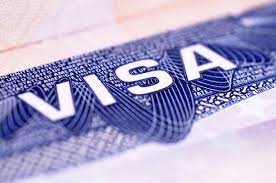Recently, a band I know from of in Taiwan was excited to receive an invitation from an event organizer to join the line-up of a big 3-day music festival in the United States. Like many Asian musicians, these guys are keen to tap into the U.S. market and they hoped they could also build in some other gigs before and after the festival in order to maximize their exposure on the ground there. Unfortunately, a misunderstanding between the parties concerning U.S. immigration requirements and procedures caused the band’s management to decline the invitation.
The U.S. Customs & Immigration Service oversees the processing of the visa(s) that foreign musicians need in order to perform publicly and legally in the United States and there are three different categories available to applicants: P-1, P-2, and P-3. The P-1B classification is reserved for members of an entertainment group that has been recognized internationally as outstanding in their discipline for a sustained period of time (e.g., the Rolling Stones), while P-2 is for artists and entertainers who, either individually or as a group, will perform under a reciprocal exchange program between and organization in the United States and an organization in another country. P-3 visas are for artists and entertainers who, either individually or as a group, are to perform, teach, or coach in the United States under a program that is culturally unique.
The first step in the process is the submission of a Petition for a Non-Immigrant Worker (Form I-129), which the USCIS will process within 30 to 120 days under their normal processing procedure, or within 14 days upon the petitioner’s payment of a USD 2,500 Premium processing fee. The petition can only be filed by the prospective U.S. “host” on their petitioner’s behalf, and the scope and degree of information required, including details such as the artists’ full travel itinerary and their U.S. accommodations, is fairly onerous. The petition also requires company-specific details about the host’s business operations, including among other things the owners’ identity and corporate structure, the company’s net annual income and its present book value, and it must be signed by them. It’s therefore a good litmus test of the host’s sincerity.
Foreign bands are best advised not to do anything until they know with 100% certainty that a properly completed petition has been submitted to the USCIS with sufficient time to oversee its processing. If for any reason the prospective U.S. host has not or will not disclose the requested information needed to process the petition on a timely basis, or simply will not take his/her time and attention to ensure that the forms are properly and accurately completed, permission for entry is unlikely to be granted. If the parties have not communicated effectively to plan out a detailed agenda for the artists the form will fail for insufficiency. And unless the petitioner is willing to pay the Premium processing fee, the application needs to be submitted months in advance of the prospective performance dates. Although lawyers and third-party service providers may offer their services to obtain “guaranteed” approvals on an “emergency” basis, the reality is that most of the information required for the petition is beyond their personal knowledge and they will need to obtain the petitioner’s signature in any event.
Although the further specific P-1 criteria for determining whether an artist has been internationally recognized for a sustained period of time are unspecified, the attestation required for P-2 and P-3 visas substantiating either a reciprocal exchange program or cultural uniquity is typically obtained from a duly recognized U.S.-based professional guild or organization. The American Federation of Musicians could have provided such an attestation in this case, for a fee and upon request.
Unfortunately for the Taiwanese band, a lack of clarity on the process discussed above and the limited remaining time following such clarification proved both overwhelming, making the contemplated tour cost-ineffective under the circumstances. Foreign bands interested in performing in the United States should therefore be aware of the USCIS requirements and allocate sufficient resources (time and money) to accommodate them. Check in with an experienced consultant if you’re in doubt or have further questions.
(c) 2023 Frank Rittman




